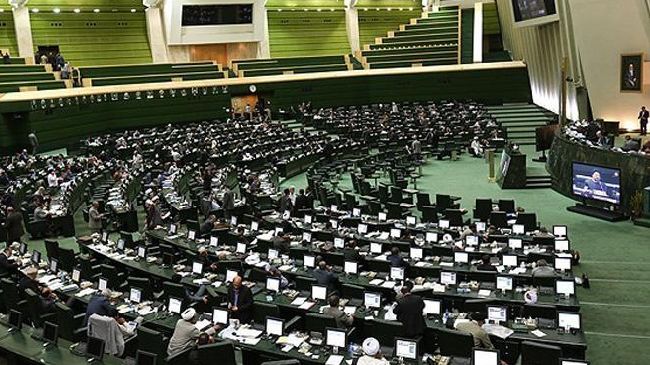Iran’s Parliament has Just Voted to Ban Inspectors from Military Sites. American Negotiators Better Develop Some Spine.
On Sunday, an overwhelming majority of the Iranian parliament, the Majlis, voted to ban access by IAEA inspectors to all military sites, documents and scientists. As one might imagine, that sort of access is crucial for understanding the nature and lawfulness of Iran’s program.

On Sunday, an overwhelming majority of the Iranian parliament, the Majlis, voted to ban access by IAEA inspectors to all military sites, documents and scientists. As one might imagine, that sort of access is crucial for understanding the nature and lawfulness of Iran’s program. According to the Associated Press, the vote—which took place to chants of “death to America” by parliamentarians—“could complicate” the ongoing nuclear talks. It probably should.
As I’ve written before, the entire structure of the NPT rests on the IAEA retaining access to whatever sites it deems necessary for ensuring the peaceful nature of a country’s nuclear program. This assumption is already codified in Article 73 of the comprehensive safeguards agreement (that Iran has already signed) and its rearticulation is the primary purpose of the additional protocol that Iran committed to signing and implementing under the Joint Comprehensive Plan of Action.
But beyond Iran’s own existing legal responsibilities, comprehensive IAEA access is, simply put, the reason why the West is at the negotiating table. No concession, agreement or commitment matters if the world cannot be confident that Iran isn’t simultaneously advancing its nuclear program impermissibly at some secret, off-limits site. And after decades of secret facilities, improper enrichment and stonewalling of inspectors, the need for intrusive IAEA inspections to ensure Iranian compliance is heightened, not diminished. Denying the IAEA prompt and full access to Iranian military sites (as it has with the sites of every other country) would turn any nuclear agreement into a joke.
Yet, this is precisely the demand that the Iranian parliament has chosen to codify into law mere days before negotiations are set to expire. At worst, the vote represents a genuine Iranian bottom line, and so desperate American negotiators will choose to hedge and fudge the issue. But even at best, the vote represents a total lack of credibility on the part of our interlocutors.
No doubt, the White House is already figuring out how to minimize the significance of the Majlis vote. Communications staff will emphasize that Iranian leadership has already blessed the April 2nd parameters agreement that included a commitment to the Additional Protocol. Surely, they will argue, that commitment takes precedence and the recent parliamentary vote represents a mere negotiation tactic. In any case, a deal’s defenders will add triumphantly, the vote of the Majlis is not yet binding; the bill still requires ratification by the Guardian Council. Surely if an agreement is reached, the Guardian Council will reject this bill.
Perhaps, and perhaps not. But even if we adopt this line of wishful thinking, the image is still dire. Consider, for a moment, that President Obama successfully urged Congress not to pass prospective sanctions (that is, sanctions that would only come into effect if no deal was reached) out of fear that such a bill might rock the boat with Iran. Yet, here is the Majlis, with 199 of 213 present members (and more than ⅔ of the total body) voting to permanently close the door on the West’s primary objective (and with shouts of “death to America” as accompaniment). The closest equivalent would be Congress voting to permanently ban all sanctions relief on the eve of final negotiations. Of course, the very idea of Congress doing such a thing is absurd.
Still, defenders of the looming deal will find ways to insist that we avoid taking the Majlis at face value, and to insist that “our hardliners” are really no different from “theirs.” After all, they will argue, surely there are cultural differences that make the Majlis’ apparent lack of faith less awful and its parliamentarians' cries for annihilation less horrifying. Nevertheless, there is a point at which cultural difference is no longer an excuse, but the very crux of the problem.





